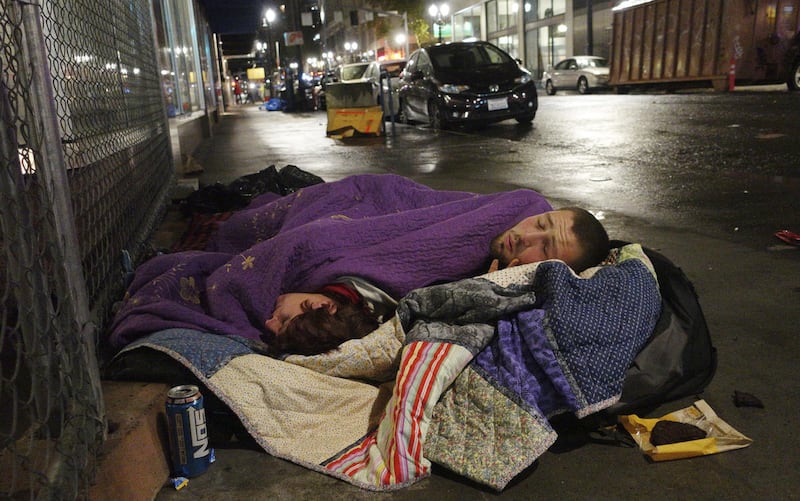Dignity has become a buzzword in the world of services to the homeless. And it’s easy to feel good about the idea of restoring dignity to people in need.
The INN Between in Salt Lake has been called a place that helps people “die with dignity.” In 2015, Islamic Relief USA coordinated a “Day of Dignity” event in Salt Lake’s Pioneer Park. The Kansas City Community Kitchen in Kansas City, Missouri, values “dining with dignity.”
But if you think that these programs and initiatives are intended to give or restore dignity to homeless people, you are wrong.
The purpose of such organizations and initiatives is to treat people with the respect they deserve, to honor the inherent dignity within all people. But somewhere along the line, a subtle shift occurs. This shift changes the message from “we will treat you with respect because of your inherent dignity” to “every other day of your homeless lives is devoid of dignity and we are the only ones who can give it back to you.”
Instead of facilitating empowerment, the message comes across as paternalistic.
This happens when we use the shorthand of “giving dignity to the homeless” instead of taking the time to really consider the important and profound principles that are intended to undergird these programs and services. This isn’t just about food, shelter and medical care. Those things are not the equivalent of dignity.
The INN Between provides, among other things, professional hospice services in a 15-bed "surrogate home" for people who have nowhere else to go as they face a medical crisis. The program “also addresses the social injustice of homeless individuals lacking access to hospice care, which is ... home-based and cannot be delivered in shelters or on the streets.”
According to Islamic Relief USA’s Day of Dignity event manual, part of the mission of this Virginia-based organization is to “empower individuals in their communities and give them a voice in the world.” The point of the event is not to just provide goods and services, but to treat people with respect and to offer opportunities for community interaction.
The Dining with Dignity program in Missouri runs like a restaurant, taking orders from its client population and focusing on healthy, nutritious food. Their definition of “dining with dignity” has the following three tenets: “There is power in being able to make a decision for yourself, no matter how small. We have seen that lines are not necessary and often dehumanizing. We value feedback and ask our guests what they think and listen to what they have to say.”
The dignity these programs restore is not that of the clients receiving services. It is not the people on the streets who have been undignified. Synonyms for the term “undignified” include unbecoming, indecorous, shameful, improper and inappropriate. Do these descriptions sound more fitting of the people experiencing homelessness, or the system which kept them there?
It is the privileged who have been undignified in how they treated others, and it is the dignity of our behavior that needs repair.
This subtle semantic shift is not trivial — it impacts the way donors and volunteers view the people they serve. “Restoring dignity” can too easily become a comfortable linguistic shortcut. It makes givers feel good about what they have done while failing to address those components of systemic homelessness that can, in fact, change. People on the street are not nearly as concerned with the various constructs and perceptions related to dignity as they are the civil rights, liberties and ability to make meaningful choices that are generally associated with being a member of society.
We need to equalize power dynamics by providing opportunities for social interaction on a level playing field.
We need to ensure that people have voice and choice in the services they receive, in part by including clients in the feedback loop.
We can honor the individuality of each person, including making space for their personal possessions, even if that includes cumbersome bedrolls and backpacks.
And for the love of all that is holy, we can let people lie down when they sleep, preferably on something soft. There are places in this country where people in shelters have to sleep sitting up on metal folding chairs. Tell us again, who is being undignified? It’s not the people who are just trying to get a night’s rest.
Our collective message to people experiencing poverty should be this: you are naturally imbued with the inherent dignity of belonging to the human family. We will treat you with the respect, privilege and voice you deserve simply because you are.
Editor's note: This article was coauthored with a researcher who is doing undercover ethnographic research on homelessness.
Eva Witesman is an associate professor at the Romney Institute of Public Management at Brigham Young University. She coauthored this article with a researcher who is doing undercover ethnographic research on homelessness.


